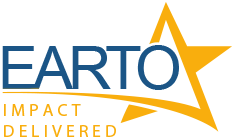26 / 07 / 2022
EARTO Answer to the EC Consultations on Horizon Europe Interim Evaluation & Horizon 2020 Final Evaluation
EARTO Members have been very active participants in EU RD&I Framework Programmes for the last decades. In our last Horizon 2020 analysis, the share of EU grants to Research & Technology Organisations (RTOs) is relatively larger than RTOs’ share in the total number of FP participants. Currently, EARTO members are involved in many instruments of the Horizon Europe programme. While waiting to be able to do a proper analysis with eCORDA data, we collected our members’ first experiences of the Programme and have been positively surprised by the success rates in the first calls Horizon Europe: there has been no drastic reduction of those as it has been usual in earlier Framework Programmes’ first calls.
However, our members mentioned four issues that should be quickly looked at:
- Final Rules of participation: It is simply not acceptable that beneficiaries are still missing the final version of the Annotated Model Grant Agreement while they are signing grant and consortium agreements.
- Quality of the Evaluation Summary Reports (ESRs): The poor quality of ESRs has been over the last FPs a recurrent issue. It seems even more predominant in this FP with a lack of consistency and quality of the ESRs received by applicants.
- Overview of EC Studies launched to prepare the Mid-Term Review: Being glad to support these EC studies, we see many areas of work to be analysed such as: the impact change of structure (merging KETs and societal challenges), the proportionality between single beneficiary instruments vs multi-beneficiaries (i.e. collaborative projects) as well as TRLs level, the impact of the new instruments such as missions and the new widening measures, the impact of the new capping of budgets on partnerships, the analysis ofthe lump-sums after a full cycle (including ex-post audits), etc.We would be glad to see if all issues of importance are covered by the planned studies while avoiding overlaps.
- IT glitches of the participants’ portal: Here proper collection of users’ feedbacks by the EC IT services could easily identify those to allow finding and quickly implementing IT solutions.
In preparation of the mid-term review, EARTO would like to point out the following issues to be further analysed in the upcoming two years:
- Instability of the RD&I Budget in the Multi-Financial Framework: The instability of this budget is two-folds: first within the MFF/EU budget being re-discussed every year, we see a regular position from the EU Council to reduce attributions to the RD&I budget while the European Parliament is pushing this one up again in the negotiations, and second, within the EU FP itself, there has been many changes in budget allocations.
- Launching the New EU Strategy on Technology Infrastructures: here EARTO would like to stress the importance of the upcoming new strategy being set up by the EC hand-in-hand with Members States to complete the current EU technology roadmaps (ERA action 12).
- Proportionality of TRLs levels to allow proper portfolio management: The need of economic recovery combined with the new structure with an all-inclusive Pillar 2 with no separate KETs programme, the capping of partnerships’ budget in each cluster, the fact that all topics related to a partnership (incl. low TRL research) have to be included within said partnership, have led to a too low coverage of the collaborative excellence basic research in Clusters. There is a need to rebalance the TRLs’ coverage to allow planning future RD&I portfolios for the next FPs.
- Use of the lump-sums (LS): EARTO with EUA and CESAER already called (i) for caution on the interpretation of the interim analysis, and (ii) to await the final and thorough evaluation of the pilot.
- Evaluation of the EU Missions: Considering the large delay incurred in launching those missions, and looking at their first calls, it is unclear at this stage whether the EU Missions will be able to deliver impact.
EARTO remains ready to provide additional input on each topic mentioned above: this is a first preliminary assessment of the current implementation of the programme which has started with delays, it will take some more time to bring out further experiences. In all cases, our experts are available for further discussion with EU institutions to ensure a successful implementation of Horizon Europe.
Read the full EARTO Answer

